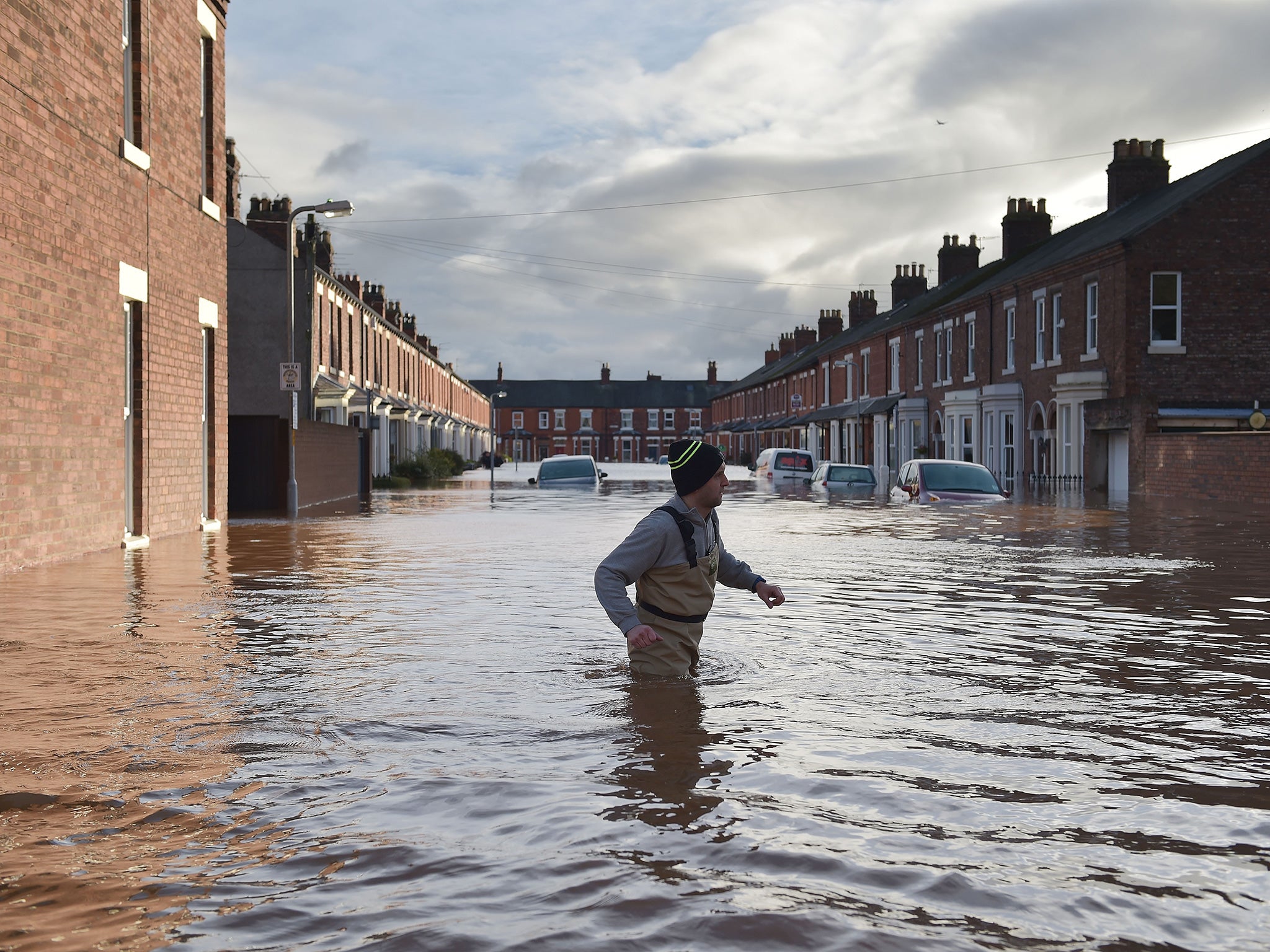Storm Desmond: Train services resume with delays as clean-up operations continue in aftermath of floods
Heavy downpours are expected again this week in northern England, Scotland and Northern Ireland

Your support helps us to tell the story
From reproductive rights to climate change to Big Tech, The Independent is on the ground when the story is developing. Whether it's investigating the financials of Elon Musk's pro-Trump PAC or producing our latest documentary, 'The A Word', which shines a light on the American women fighting for reproductive rights, we know how important it is to parse out the facts from the messaging.
At such a critical moment in US history, we need reporters on the ground. Your donation allows us to keep sending journalists to speak to both sides of the story.
The Independent is trusted by Americans across the entire political spectrum. And unlike many other quality news outlets, we choose not to lock Americans out of our reporting and analysis with paywalls. We believe quality journalism should be available to everyone, paid for by those who can afford it.
Your support makes all the difference.- David Cameron promises to provide more funding for flood-hit councils
- Over 1,000 homes still without power in Cumbria
- At least three people have died due to the severe weather
- More than 5,200 homes and businesses have been flooded, according to The Environment Agency
- West Coast mainline services have re-opened
- Further severe weather warnings issued for week ahead
Thousands of people remain without power following damaging floods caused by Storm Desmond.
Homes and businesses have been devastated by rainfall which broke records set in 2009, while three people have died as a result of the extreme weather.
Severe weather warnings have been issued by the Met Office as heavy downpours were forecast again this week in northern England, Scotland and Northern Ireland.
The weekend saw a new record created for the largest amount of rain in a 24-hour period, with 341.4mm recorded at Honister Pass in Cumbria.
The maximum wind speed recorded was 81mph, in Capel Curig, Gwynedd.
Hundreds of families were temporarily left homeless as they were evacuated from houses devastated when lakes and rivers burst their banks in Cumbria, Lancashire and other nearby areas.
Join our commenting forum
Join thought-provoking conversations, follow other Independent readers and see their replies
Comments